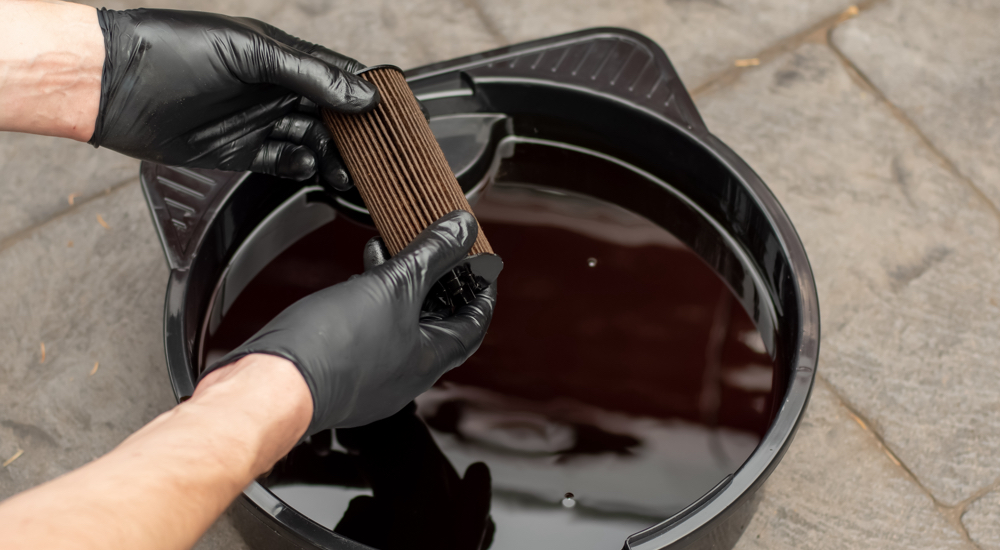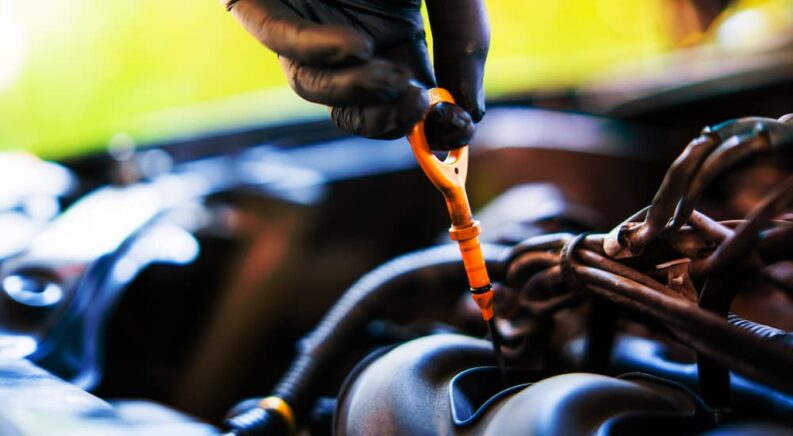So, you’ve successfully completed an oil change, now what? What exactly do you do with all that dirty oil you just filtered out of your car? Disposing of old oil properly is very important, especially when it comes to keeping stormwater and drainage systems clean and safe. You can’t just toss the oil in your trash can or pour it down the sink, so where and how exactly are you supposed to get rid of it? The good news is that there are plenty of ways to dispose of old oil, and when it comes to ensuring that you’re doing it properly, read on for some tips.
The Importance of Properly Disposing of Your Oil
When you’ve successfully drained the old engine oil out of your vehicle, what you do next with it is key. Since you can’t just toss it away like a regular piece of garbage, you’ll need to understand why it needs to be handled with care. Disposing of old oil improperly can result in pollution of the ground and water systems, depending on where you pour it. It can also damage your drain if you choose to pour it right down the kitchen sink. Being that motor oil is a natural lubricant, used to lubricate the moving parts of your engine, it can wreak havoc when placed where it shouldn’t be. This is why you need to be smart about disposing of it so that you don’t cause big problems down the line.

Places You Shouldn’t Dispose of Your Engine Oil
First, let’s talk about where NOT to dispose of oil, just in case you were thinking of doing this with the oil you’ve just collected from your car. Here are some of the top places where used engine oil absolutely should not go, no matter what.
Down the Drain
Whether you’re thinking about dumping old oil down the storm drain outside or right down the kitchen sink, you’ll want to stop that thought process right now. As mentioned earlier, oil is a natural lubricant, and when dumped down a drain, it can cause major clogs, as well as damage to your plumbing system. If it is dumped outside in a storm drain, not only is this illegal, it also makes for a hazardous environmental situation. It can quickly contaminate drinking water and the surrounding soil, which can become a big problem for you and your neighbors.
On the Ground
So, what about just dumping it outside in the backyard? Again, that’s a major no-no and illegal in most places. Just the same as dumping it down a storm drain, dumping it on the ground can result in pollution of your water and soil.
In the Trash
You may think that your friendly neighborhood garbage truck will be able to dispose of your old oil for you. Wrong. Just think about where the garbage goes after it’s picked up. The landfill, right? And if your old oil gets onto the ground, it’ll seep into it and contaminate the water, as well as the surrounding area.

How to Dispose of Your Old Oil
So, where should you put old oil once you’re done with it? Let’s back up for a moment and discuss the steps you should take to ensure that you’re containing it correctly, then disposing of it in a designated area. Collect the old engine oil in a specialized oil drain pan. You can find these at any auto parts store. They’re used specifically for collecting engine oil so that the oil doesn’t seep through. You’ll want to make sure that you place a tarp underneath the pan so that none of the oil ends up on the ground. Changing your oil isn’t the cleanest job around, but it doesn’t have to get everywhere, which is why taking some necessary precautions can ensure that you’re being as neat as possible.
Next, be sure to empty the oil filter as well. There will be excess oil in it too, so making a small hole in its dome and emptying it into the oil drain pan is important. Take the old filter and place it in a plastic bag for disposal. It’s recommended that you buy an oil drain pan with a lid so that it can also be used for storage. If you don’t have one of these, ensure that you can transfer it into a proper storage container later. Items like old milk jugs or empty laundry detergent containers aren’t good enough. You need a special container to ensure that the oil doesn’t leak out and contaminate the area.
If you have a big enough container and it can hold a few oil changes’ worth of oil, it’s important to store it in a cool, dry place until you’re ready to dispose of it. If you are ready to dispose of it, you can take it to your nearby recycling center. If this isn’t an option for you, check with your local auto parts stores—many of them will dispose of it properly for you.
Dispose of Your Old Oil Responsibly
Disposing of old oil properly is your responsibility if you are the one who is changing your oil regularly. That’s why many drivers choose to get their oil changes performed at a service center, so they can avoid having to worry about getting messy and having to dispose of their oil themselves. As you can see, if done properly, disposing of old oil can be quick and seamless. Just be sure that you get in touch with a place that is trained in handling it and disposing of it properly so that you don’t have a negative impact on the environment.

